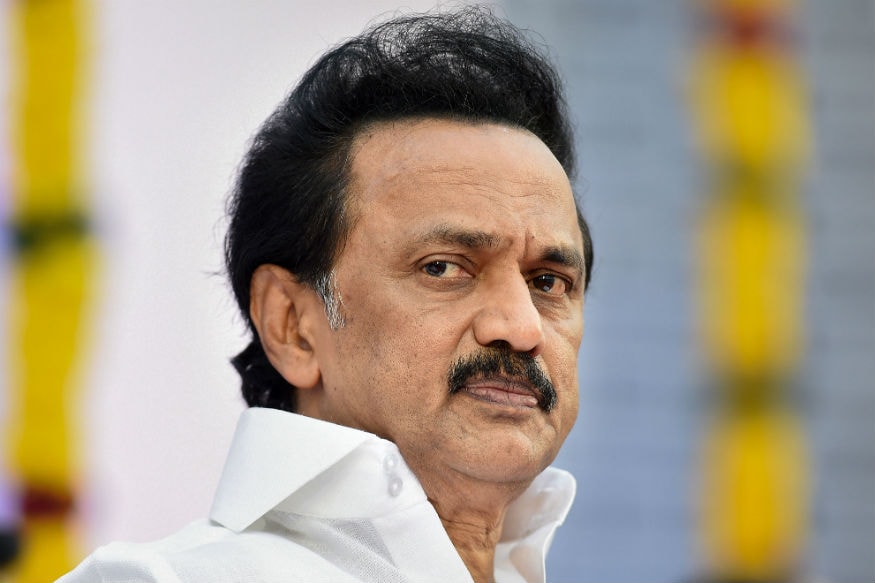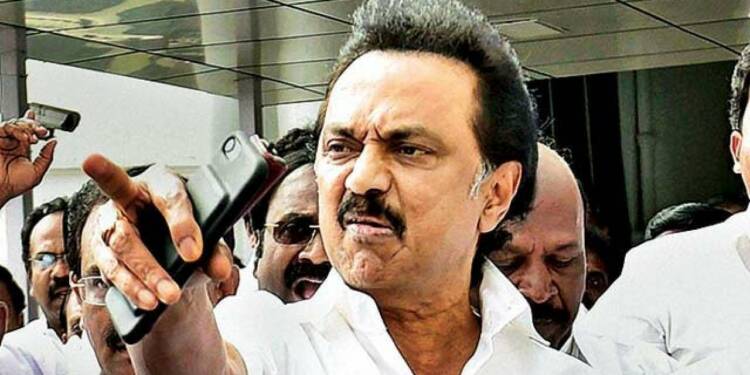When elections are around the corner, political parties make lofty promises on which they cannot deliver. From Congress’s NYAY scheme to Samajwadi Party’s unemployment benefits, elections in India are a season of bad economic ideas. And, despite the lack of financial capacity in the state’s treasury, some parties try to deliver on these promises in parts by looting the taxpayers. The latest to join the bandwagon is DMK’s MK Stalin, who has promised 1,000 rupees to every woman head of the family per month if his party comes to power in Tamil Nadu.
The Congress’s 2019 manifesto, filled with promises of freebies, is being adopted by the regional parties like DMK as a guiding document for assembly election manifestos. DMK’s 2021 assembly election manifesto has every recommended step, from reservation to locals in private jobs to quasi-universal basic income scheme as well as free tablets, to destroy Tamil Nadu’s healthy economy.
Read More- Sasikala’s exit from politics will ensure a big victory for BJP-AIADMK alliance in Tamil Nadu
“Tablets with free data will be provided to government school and college students,” Stalin told a press conference at party headquarters Anna Arivalayam. Moreover, taxes on petrol and diesel would be brought down while subsidies to be provided on LPG cylinder and milk in order to keep their prices low.
Stalin is also trying to shed the anti-Hindu image, as he promised in the manifesto to provide assistance of 25,000 rupees to up to 1 lakh rupees to the people visiting major Hindu temples for pilgrimage. Moreover, DMK promised an allocation of Rs 1000 crore towards renovation and consecration of Hindu temples, Stalin assured to provide Rs 200 crore for churches and mosques in the 2021 assembly election manifesto.
However, DMK has no idea of where the money for all these schemes and freebies would come from. Stalin is just starting the vicious cycle of making Tamil Nadu a mai-baap state (a state which interferes in every aspect of citizen’s life) through competitive populism.
In order to deliver on these promises, the state would have to Incur at least 50,000 crore rupees of extra expenditure. The 1,000 per month to women of every household would alone cost more than 20,000 crore rupees to the state treasury.

The size of the state budget is around 3 lakh crore rupees and Stalin’s proposed scheme would take out almost 7.5 per cent of the state’s budgeted expenditure. The public debt of Tamil Nadu is one of the highest, at around 5 per cent of the state’s GDP.
Just a week ago, Deputy Chief Minister O Panneerselvam expressed his inability to control the fiscal deficit of the state. “With the Covid-19 pandemic, the State Own Tax Revenue (SOTR) collapsed in the first four months of the current financial year due to the lockdown and the additional time provided for remittance of tax dues,” he said during the budget session of the Tamil Nadu assembly.
“It is completely unavoidable that the Government had to resort to borrowings resulting in a higher fiscal deficit,” he added.
Tamil Nadu’s debt burden would only increase if Stalin implements this scheme. Last year, the total capital expenditure (money spent on asset creation) was less than 50,000 crore rupees and if this scheme is implemented, it would further be reduced to around 30,000 crore rupees.
A few weeks ago, the data on Gross State Domestic Product was released and as per the data, Uttar Pradesh has taken over Tamil Nadu as the second-largest economy in the country. If Tamil Nadu continues to spend on only welfare and not asset creation, the states like Karnataka, Gujarat would also take over the state and leaders like Stalin would be responsible for the economic decline of one of the richest states of the country.

























